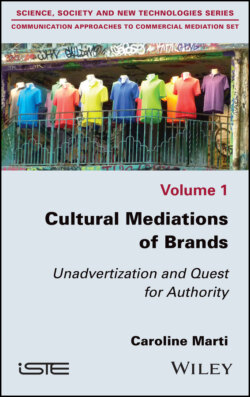Читать книгу Cultural Mediations of Brands - Caroline Marti - Страница 14
I.3. Communication, the object of discourse I.3.1. The denial of a permanent evolution
ОглавлениеThe paradigmatic break in the consumer’s paradigm announced by some in recent years is part of the flow of a permanent evolution of representations of consumption, consumers and what professionals consider to be good practices. Coupled with the technological evolution and the rise of the Internet, and the representations of market communication mentioned above, these representations of consumer developments have contributed to the emergence and wide dissemination of the idea of a new consumer who has become an “expert” or become “intelligent”. However, it should have been proven that it was not so before. This striking shortcut comes from the observation of the tactics deployed by consumers, who are more easily informed thanks to the possibilities of the Internet to compare offers and optimize their purchases. Evoking a new consumer reveals a very photographic approach with an understanding of phenomena at a precise moment without placing it in a logic of technical, economic, and social evolutions. This could be seen as a denial of the gestation of transformations and, in the case of market mediation, a possible denial of the balance of power, of the existing structural tension between producers and consumers, both of which constantly adjust their act according to each other.
Yves Jeanneret develops this point through the terms of predilection and adjustment:
Predilection is based on the idea that any subject of communication recognizes and qualifies the text, reinvents in a way what makes sign and form; the adjustment to the devices defines the strictly practical dimension, in a strong sense12, of this subjective commitment. This pair of notions essentially underlies the cultural and political importance of communication, since it refers to the inventive activity that subjects deploy to create, based on their media experiences, their horizon of value, thought, and judgment. The fact that these categories are based on the resource of social creativity does not prevent them from not offering capture, influence, and strategy. (Jeaneret 2014, p. 79, emphasis added)
The denial of adjustment constitutes a communicational denial and the author underlines the importance of repression: commercial mediations are naturalized by professionals because they cannot exhibit the very foundations of their ideology, but we will return more specifically to this point later.
The points of view developed by technology providers and marketing professionals who are on the lookout for emerging issues are legitimized and disseminated in institutional spaces such as the professional press, the general press, publishing, schools and universities, conferences, to the point of becoming social topics to be known and relayed so as not to be suspected of ignorance or obsolescence, which is the ultimate risk of managerial skills.
This parenthesis was necessary in order not to ignore the underlying logic of the “new communication” that many marketing and advertising players are in favor of.
